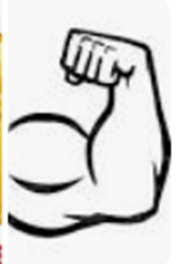Parshas Chukas
Be Happy With What You Have While You Have It!
“All the Jewish People arrived at the wilderness of Tzin…. Miriam died there and was buried there…” (Bamidbar 20: 1,2)
Reuven and Sara Shapiro were brother and sister. Reuven was 11 years old and Sara was 9. Early one morning they were awakened by the sound of their doorbell ringing. They ran to their bedroom window to see who was at the door. A truck driver looked up and told them that he had a delivery for them. Reuven and Sara noticed that his truck had huge pictures of cookies and doughnuts on it. They ran down and opened the door. [When I tell this story at JEP Shabbatons, I always warn the children that in real life, they should never open their door for a stranger]. The driver returned to his truck and brought in boxes and boxes, which he put down in the living room. Reuven and Sara started opening the boxes. They could not believe what they were looking at. There were doughnuts of every flavor along with all varieties of cookies, cakes, and pies. They called all their friends to join them in eating these yummy desserts. They shared it throughout the day. Early the next morning, they were awakened by the sound of a doorbell ringing. They ran to their bedroom window to see who was at the door. A truck driver looked up and told them that he had a delivery for them. Reuven and Sara noticed that his truck had huge pictures of games and electronics. The driver brought in boxes and boxes, which he put down in the living room. Reuven & Sara opened boxes full of the latest board and electronic games. They called all their friends to play with all the games. Meanwhile, they finished eating the delicious cakes from the day before. The next morning, the same thing happened. This time the truck driver delivered different flavors of ice cream together with frozen desserts. The routine repeated itself for two weeks. Each day, Reuven and Sara excitedly opened their front door. Two weeks later, Reuven had some friends sleeping over at his house. Early the next morning, the doorbell starting ringing. Reuven & Sara heard it and turned over in bed. Reuven’s friends went to the window and saw the truck outside. When they told Reuven, he yawned and told them to have the driver put the boxes in the living room.
What happened? Why weren’t Reuven & Sara excited about the delivery this time? The answer is that they were already used to it coming. They expected it. Therefore, it was no longer special and exciting. Hashem delivers the greatest gift to us every single morning. Hashem gives us life, by returning our neshama, our soul daily. We should be excited beyond belief, every morning. We should thank Hashem with excitement, each time. But many of us do not. Why? We are used to it. We expect it. It is not new to us, so the excitement has worn off.
The Jewish People, in the desert, had their needs miraculously taken care of. For forty years they received water daily, via a well that traveled with them. Three million people and their animals had their needs taken care of. Yet, not once in those 40 years does the Torah record that they showed appreciation for the miraculous well (Kli Yakar Bamidbar 21:17).
Furthermore, the Torah tells us (Bamidbar20:1) that Moshe’s sister, Miriam died. The very next pasuk says that the Jewish People no longer had water. Rashi connects these 2 psukim, teaching us that the well which supplied water for these 40 years was in the merit of Miriam. When Miriam died, the well no longer provided the Jewish People with water. The Kli Yakar asks why the well stopped supplying water. He answers that it was as a punishment for the Jews’ lack of appreciation for Miriam. They did not fully appreciate her for the great person that she was and for the great merit that she had earned. Apparently, the Kli Yakar says, the Jews did not eulogize Miriam properly and her memory was quickly forgotten. [After Moshe and Aharon died, it says that the Jewish People cried. It does not say that after Miriam’s death.] As a result, the water stopped flowing. Then the Jewish People realized Miriam’s greatness and that they had received this miraculous source of water only in her merit.
When things are going well, we may tend to take these blessings for granted. We may not fully appreciate our good fortune, as we come to expect it. We may not thank Hashem, as we should, for each kindness that He bestows upon us. Sometimes, only after the blessing is taken away, do we fully appreciate it, retroactively. This trait of not fully appreciating what we have also applies to our relationships with people. Sometimes we do not fully appreciate our loved ones until they are no longer with us.
Be happy with what you have while you still have it! Do not wait until it is gone to appreciate it. Constantly thinking about all the good that Hashem does for you will help you to value it and not take it for granted. Also, do likewise and appreciate your loved ones while they are still with you.













